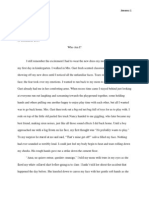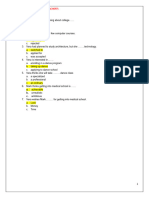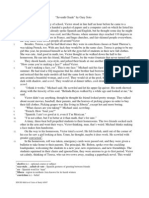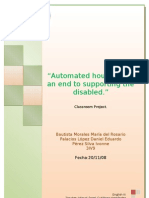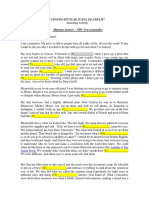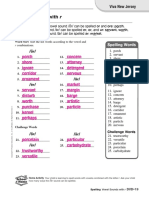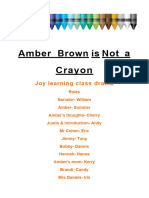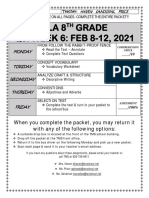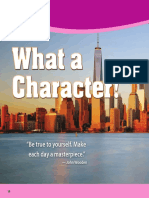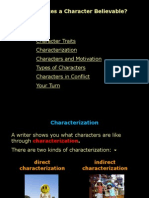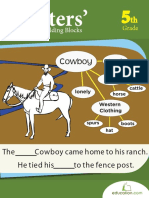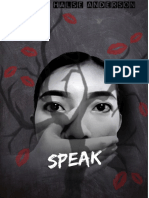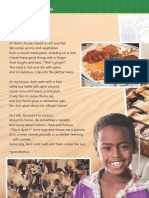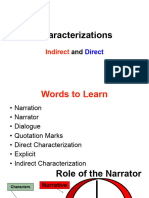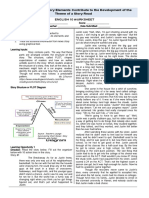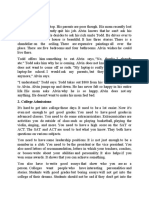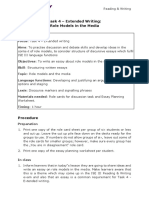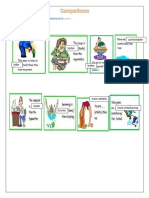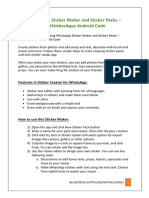0% found this document useful (0 votes)
3K views7 pagesLesson 10.44
The document is a lesson plan for an English class focusing on literary nonfiction, specifically an excerpt from 'When I Was Puerto Rican' by Esmeralda Santiago. It includes vocabulary banks, discussion questions, and reading/annotation focuses to help students analyze the narrator's feelings about changing schools and her aspirations. The lesson aims to engage students in understanding character actions, main ideas, and supporting details within the text.
Uploaded by
maryamarsalan772Copyright
© © All Rights Reserved
We take content rights seriously. If you suspect this is your content, claim it here.
Available Formats
Download as DOCX, PDF, TXT or read online on Scribd
0% found this document useful (0 votes)
3K views7 pagesLesson 10.44
The document is a lesson plan for an English class focusing on literary nonfiction, specifically an excerpt from 'When I Was Puerto Rican' by Esmeralda Santiago. It includes vocabulary banks, discussion questions, and reading/annotation focuses to help students analyze the narrator's feelings about changing schools and her aspirations. The lesson aims to engage students in understanding character actions, main ideas, and supporting details within the text.
Uploaded by
maryamarsalan772Copyright
© © All Rights Reserved
We take content rights seriously. If you suspect this is your content, claim it here.
Available Formats
Download as DOCX, PDF, TXT or read online on Scribd
/ 7

